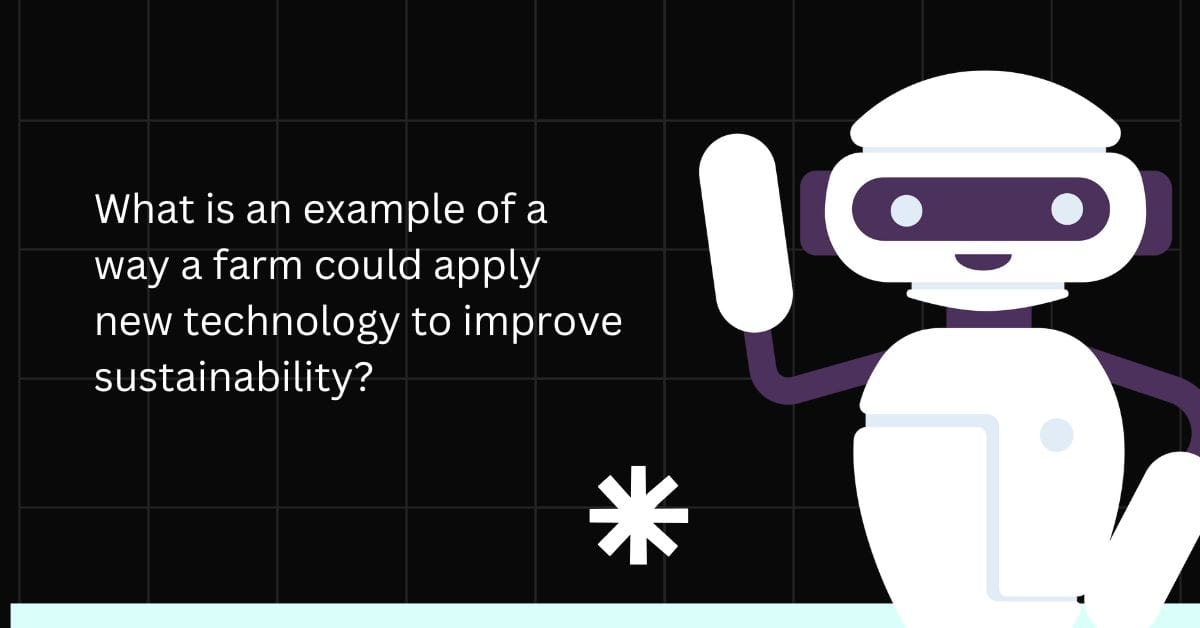- Data centre for information storage
- Machine Learning for transportation organisation
- Crypto currency for equipment purchases
- Artificial intelligence to predict and adjust water usage
- All of the above
Answer: All of the above
Answer Explanation:
Due largely to technological advancements in the form of sensors, gadgets, machinery, and information technology, farms and agricultural operations today operate quite differently from those of a few decades ago. Sophisticated technologies like GPS, temperature and moisture sensors, aerial photography, and robotics are often used in agricultural practices today. These sophisticated gadgets, robotic systems, and precision farming make it possible for farms to operate more profitably, effectively, safely, and sustainably.
A farm could implement new technology such as a data centre for information storage, machine learning for transportation optimisation, blockchain-based cryptocurrency for equipment purchases, and artificial intelligence to accurately predict and adjust water usage to operate sustainably. These technologies can improve resource management, minimise environmental impact, and boost farm output.
Building a data centre on the farm grounds allows for the storage of additional information, which can then be utilised to optimise farm operations. This involves monitoring crop health, soil conditions, and weather patterns. Implementing machine learning to optimise product transit and delivery has the potential to drastically cut logistics’ carbon footprint. Machine learning algorithms can optimise routes, minimise fuel consumption, and forecast maintenance requirements, improving efficiency and sustainability.
Supply chain transparency and traceability can be improved by using blockchain-based cryptocurrency to buy new farm equipment. By guaranteeing that transactions are safe and traceable, this technology lowers the possibility of fraud and guarantees that the equipment is supplied ethically and sustainably.
Artificial Intelligence has enormous potential to enhance the sustainability of the agriculture industry through a variety of applications. For example, it may help determine the best time to harvest fruits and vegetables, reduce waste, and check the health of soil and crops. Artificial intelligence can increase real-time agricultural production monitoring, allowing for more effective and supervised processing.
Furthermore, the integration can lead to more effective water usage, preserving this vital resource while increasing agricultural yields. The use of robots and drones in agricultural fields may identify weeds, pests, and diseases, nutrient-deficient areas, monitor crop production and quality, and perform other tasks.
